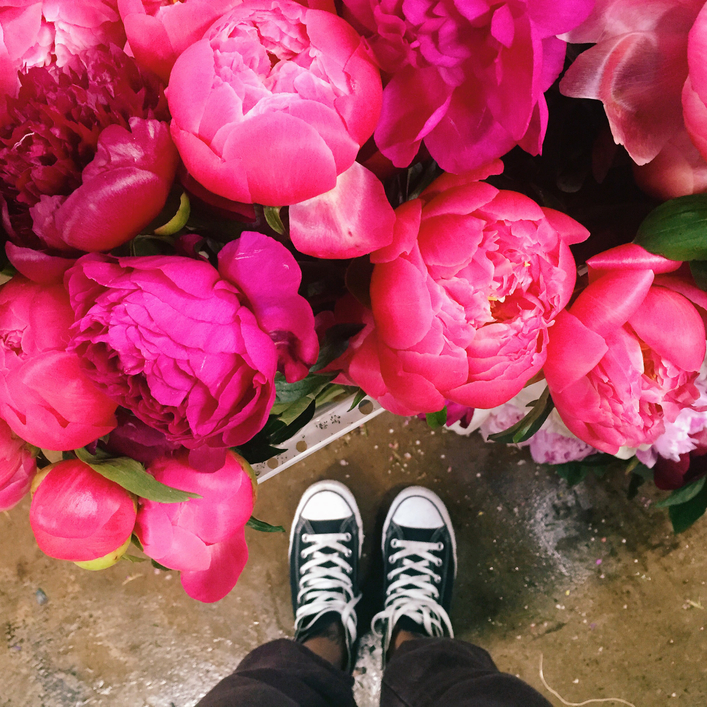09 Aug How Presence Becomes Presents

During a particularly hard break-up in my 20s, a friend advised me, “The more present you are during this process, the bigger the present you’ll get out of it.” And though I barely understood what that meant, I gave it a try and an odd thing happened. I saw that I was choosing the big, dramatic grieving process I was going through. And that meant it was entirely optional.
In The Art of Presence, Eckhart Tolle says, “Through thought you cannot possibly grasp what presence is.” But he gives some clues to point us in the right direction. He says it’s there, “when you’re not thinking about the last moment, or looking to the next one.” And he uses phrases like “a state of relaxed alertness” and “a spacious stillness,” to describe it.
Thich Nhat Hanh said, “The most precious gift we can offer others is our presence.”
Our presence is tremendously rare and hugely valuable. Especially in this age of epidemic distraction, it’s increasingly difficult and uncommon to choose a voluntary time-out from technology, data, and our own mental analysis. But unlike the artificial value of a coin that accidentally got stamped with a head on both sides, our presence can do for us what nothing else can. And we can make it more abundant by simply choosing it.
Although it may not put food in our belly, most other problems disappear with presence. The need to fix or relive the past disappears. The need to avoid certain unwanted events in the future disappears. Even if were working on something now that will benefit us in the future, with our presence, we work on it now in order to work on it now. And that’s enough.
The allure of distraction, which so often threatens our presence, dissolves when we practice being present. Do you know the word obviate? I like to write using words that everyone understands, but there’s only one word I can think of that means “to make unnecessary,” and that word is obviate. Learning to deepen our presence obviates the need for distraction and mental departure from the activity at hand.
With presence, we perceive all kinds of intelligence and detail that we’re otherwise deaf and blind to. We know when to eat and when to stop eating. We know how to move our body in a way that doesn’t cause pain or injury. Our work becomes more interesting. Our relationships become healthier. We listen better and we feel heard.
With two kids, my presence is requested almost incessantly. I hear the word Papa at least 100 times a day. Often, I hear it ten or more times in quick succession. We all yearn for someone’s total presence with us. These are the moments of connection between what is the same in both of us. Presence uncovers what’s real in this moment. And that’s refreshing, exciting, and affirming.
When we’re all so busy that we see time as a commodity, it can seem that giving our presence to someone else is like giving away our treasure. But, are we actually giving something away?
Of course not. When we “give” our presence we gain the present. To withhold our presence means both we and the other person miss out.
So, how can you learn to be more present? It takes practice. If you’re new to this, I don’t recommend making a goal like, “I’m going to be more present from now on.” I don’t want to discourage you, I just want you to be realistic about what you’re up against – a lifetime of habits and a sea of tantalizing distractions.
Try something a bit less ambitious, such as this: Once a day, as you begin some activity – whether it’s buying groceries, playing Candyland, eating a meal, and listening to a friend’s problems – select this activity as an exercise in presence. In your mind, identify what exactly you’re doing – “I’m vacuuming the floor” – and devote yourself to that. Don’t run away in the middle of the activity. This means don’t pick up your phone, don’t depart in your mind to explore other thoughts and ideas, don’t visit the past, don’t anticipate what’s next, don’t judge. Just dwell in the present. Be saturated by the present. Feel everything. Accept everything. And let each next moment come.
Over time, quicker than you might think, you’ll start regaining your attention. You’ll be able to focus on something for more than five seconds. You’ll begin to yearn for this, which will make your practice much easier. And as you start willingly selecting more and more moments to be completely present, you’ll experience an unending offering of presents.
Be well,
Dr. Peter Borten




Phyllis Shanahan
Posted at 21:01h, 09 AugustThank you. For years I led a hectic distracted lifestyle and my son later told me that I had been emotionally unavailable. It really hurt to hear that, but he was correct?I try, now, to be totally present
Peter Borten
Posted at 21:43h, 09 AugustThanks, Phyllis and good for you for being able to receive that. Good luck staying present.
– Peter
Grampa John
Posted at 02:22h, 17 AugustThanks, Peter, for putting words to what I’ve felt as an intuition for many years – stop doing and simply be. I’m blessed with a life that allows and enables that, along with a great partner who also strives to be present. We both keep at it, and I hope our success increases.
Peter Borten
Posted at 05:56h, 22 AugustThanks, John. I think that’s all we can do – keep at it, forget, remember again, and so on. I hope you’re well.
– Peter